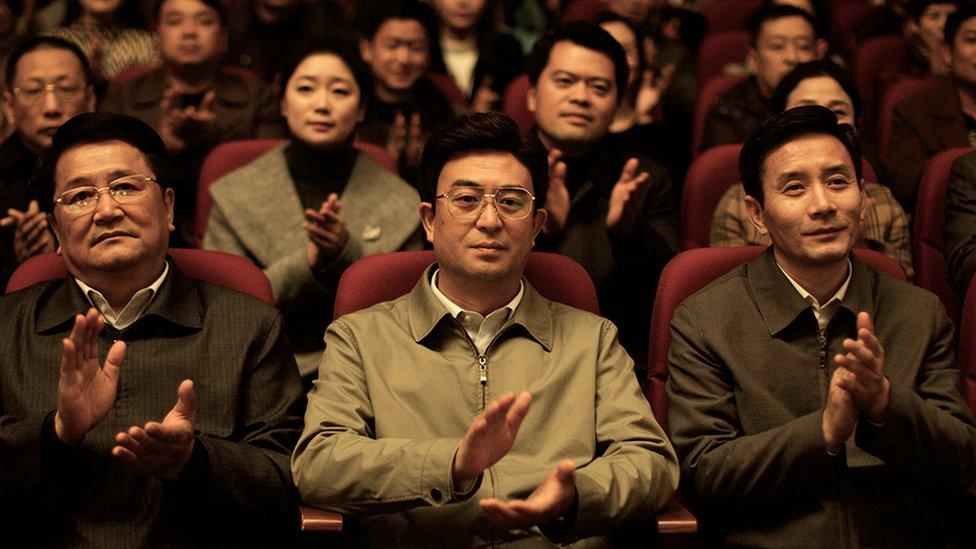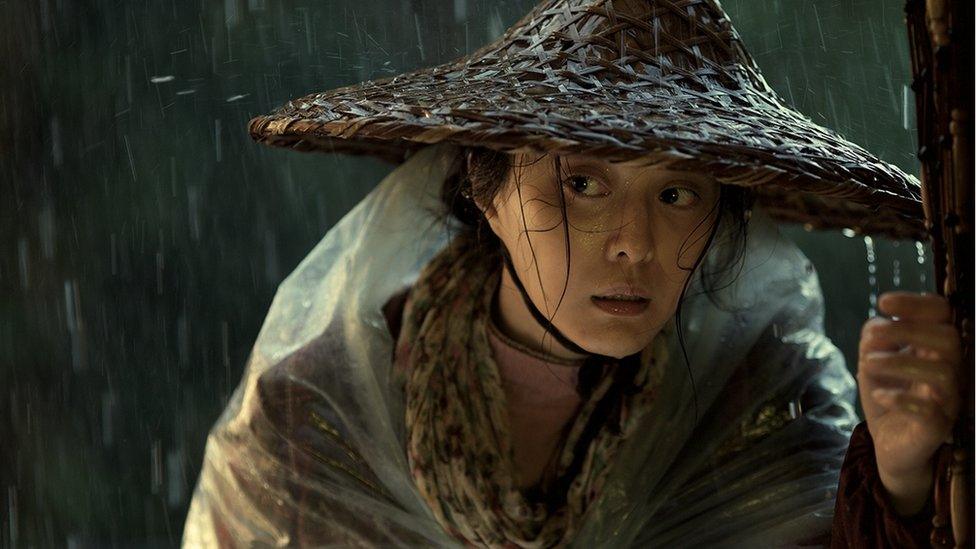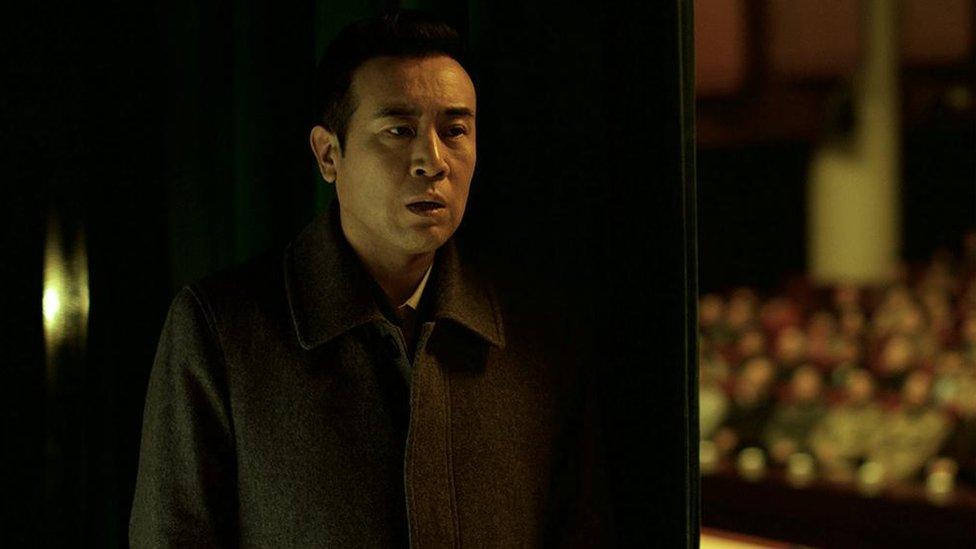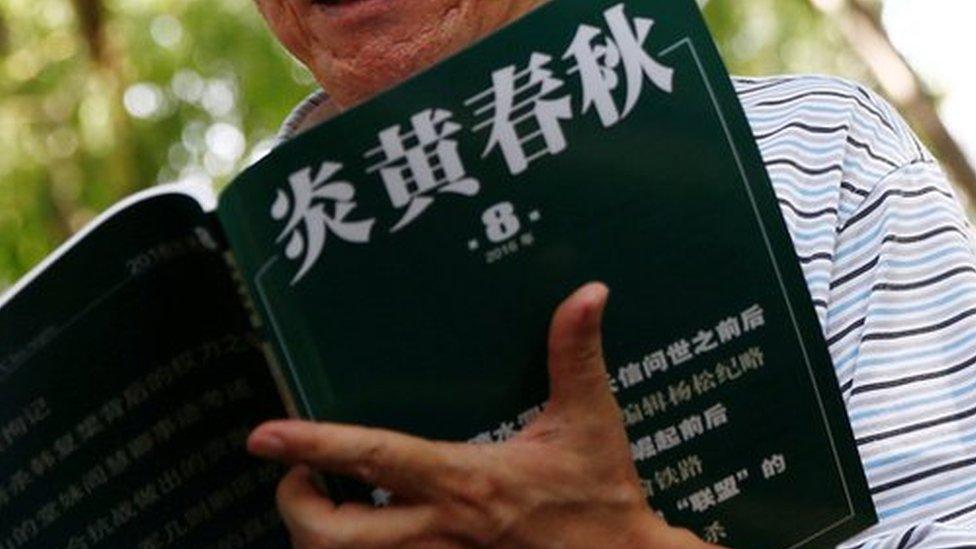Will new censorship kill Chinese filmmaking?
- Published

I Am Not Madame Bovary pushes the boundaries of Chinese censorship
China's new film censorship laws would, at first blush, be enough to make a director cry.
Movies must not promote gambling, superstition, drug abuse, violence nor teach criminal methods. What's more they should "serve the people and socialism". The horror!
So will this mean the end of great Chinese cinema and the drowning of dwindling audiences in sea of dull, paternalistic fare?
Not necessarily.
The practical application of Chinese law can be difficult to grasp at the best of times.
When the National People's Congress Standing Committee recently passed this law governing film promotion it seemed like yet another crackdown on free expression under the current administration.
But when you speak to film industry types they don't seem as worried as one might expect them to be.
Many will tell you (off the record) that these restrictions have, in effect, been around for decades so the codification of them makes little difference.
Yet, to others, putting it up in black and white does seem a little too official, leaving less wriggle room, less potential for interpretation.
Imagine the films you would have to cull in other countries if you took out a perceived promotion of gambling, drug abuse, pornography, violence, terrorism, and superstition? The Sting, Poltergeist, Pulp Fiction, Taxi Driver, Trainspotting, Betty Blue, Lock Stock and Two Smoking Barrels. You could go on all day.
In addition Chinese films are to be banned if they "distort national history or national historical figures, hurt national sentiments and undermine national unity".
So there go all the controversial historical and political films.
Or do they?

Feng Xiaogang and the star of I Am Not Madame Bovary, Fan Bingbing, at the San Sebastian Film Festival
Feng Xiaogang is a very clever man.
He is one of the top Chinese directors and is somehow able to take his work right up to the edge of the censorship barrier and still get it released in mainstream cinemas.
When watching his movies I've asked myself time and again: "How the hell did he get this through the censors?"
His latest work, which is showing right now, is amongst his most audacious in this respect.
Read more: Is it a golden age for Chinese cinema?
I Am Not Madame Bovary is the story of a peasant woman taking on layers of inept government officials.
The thing in common with all of them - the police, the courts, low-level Communist Party figures - is that their only motivation when dealing with this troublesome woman seems to be covering their own backs. And anyone who has spent time in China will confirm how true this can be.
Ordinary people who take their grievances to Beijing are known here as "petitioners". Maybe their house has been destroyed by developers in league with corrupt officials; maybe their child has been bashed up by the local constabulary; maybe they lost their job.
Under a complaint system which goes back to imperial times, citizens bring their grievances to the capital, calling on central government officials to overrule those with power in their home towns.

The protagonist of I Am Not Madame Bovary takes on all levels of Chinese bureaucracy to find justice
In today's China, petitioners never seem to get any joy and yet - with nowhere else to turn - they keep coming.
However regional and local Communist Party officials will do whatever they can to stop them.
Sometimes governments will have teams of thugs waiting outside the Beijing petition office to beat people up before they can lodge their protest.
So, if the petitioners almost never win, why do local party bosses care about them? Because it can hurt their career if those further up the chain believe that they're doing a bad job.
I once travelled to a small village in Fujian where many farmers had been dying from cancer and their relatives blamed this on a new medical waste incinerator which had been built next door to them, in contravention of Chinese law. The local Communist Party chief took me out for a meal featuring generous pours of wine and asked me every ten minutes who in the village had tipped us off to the story.
I remember saying to him that it didn't matter how we had found out about it and asking what was he going to do to help these people dying on his watch and the families they'd left behind? He laughed, poured me some more wine and said again: "So who told you about this?"
These are the themes playing out in Feng Xiaogang's new black comedy.
Officials are seen passing the buck, blaming each other and even placing teams of police outside this villager's house all in order to stop her from complaining because it will hinder their careers.
How on earth did he get this film into the cinema?
The answer must be that some senior officials at the State Administration of Press, Publication, Radio, Film and Television know that his work speaks the truth and feel that the film carries a message worth disseminating.
The other important factor is that Feng Xiaogang knows exactly how to couch the most sensitive subjects in an acceptable way.
He knows where to give a bit and where he can really ram it home.

Bureaucrats don't come off well I Am Not Madame Bovary
The Assembly, his gritty 2007 Chinese civil war film, is another masterful display of his ability to get around censorship obstacles to tell a controversial story. A lesser director would have thought this film impossible to make.
So this is why some young Chinese filmmakers remain optimistic despite the new law. They look at what he has been able to achieve and wonder how they too can get around the system.
Funnily enough some even welcome the new law because it will also force cinemas to stop lying about their box office takings. They must all install computerised ticketing equipment and are obliged to "honestly present the state of their revenue".
But the true impact of this new law will really only be known after its implementation and it doesn't officially come into effect until March 2017.
- Published17 August 2016

- Published23 November 2016
- Published11 August 2016

- Published14 June 2016

- Published1 November 2016

- Published30 October 2014
- Published25 November 2016
